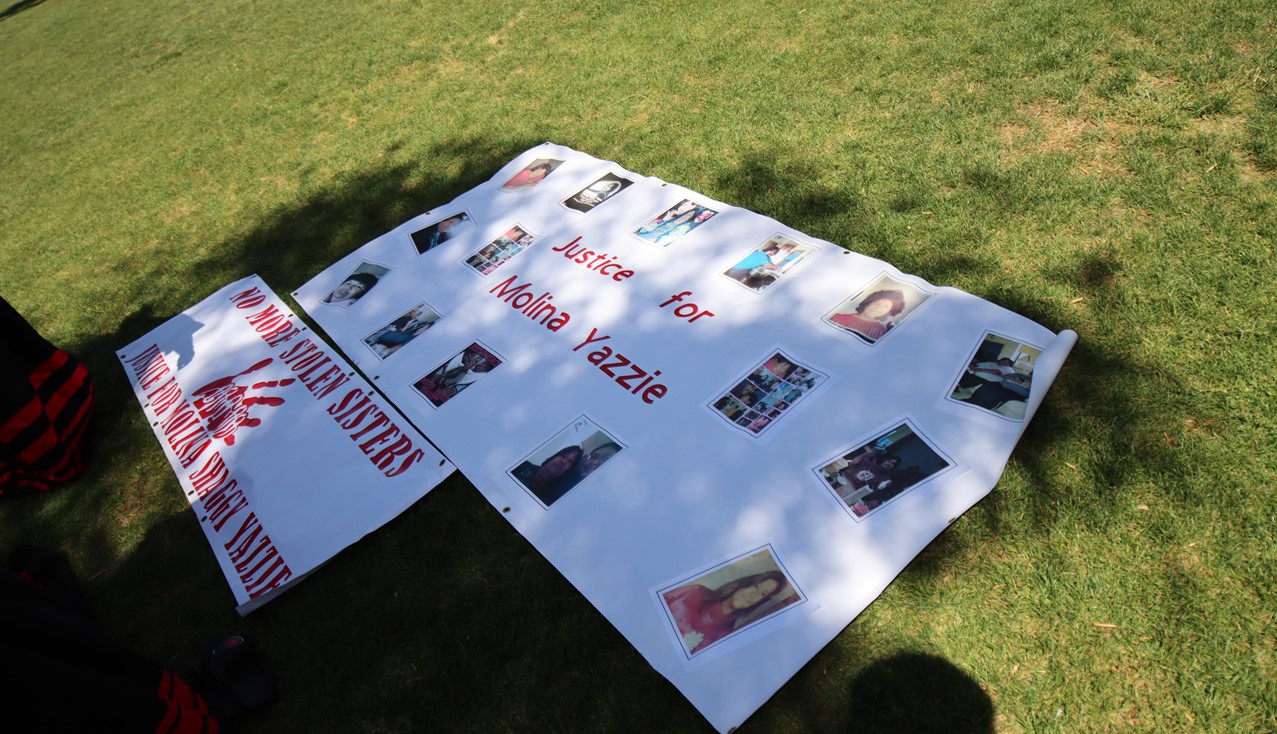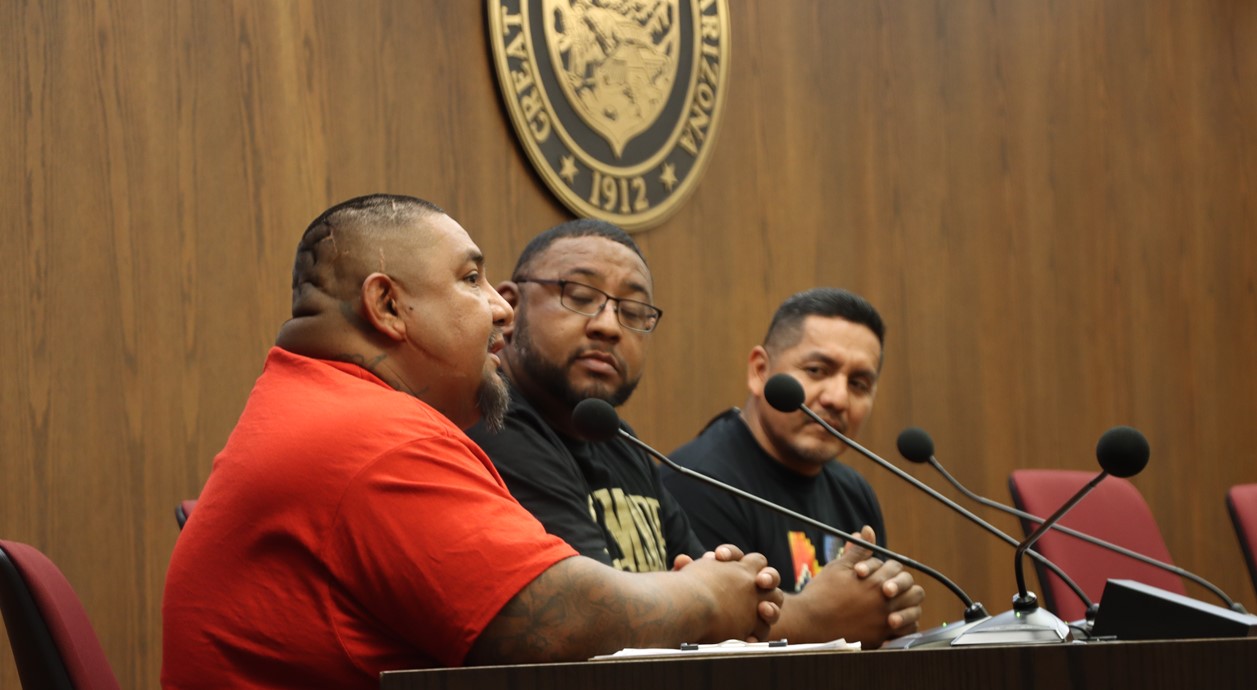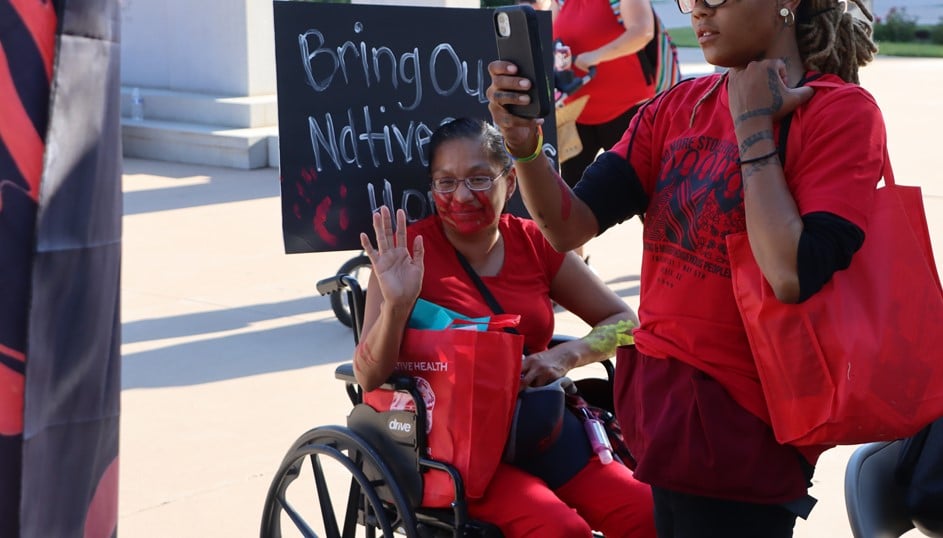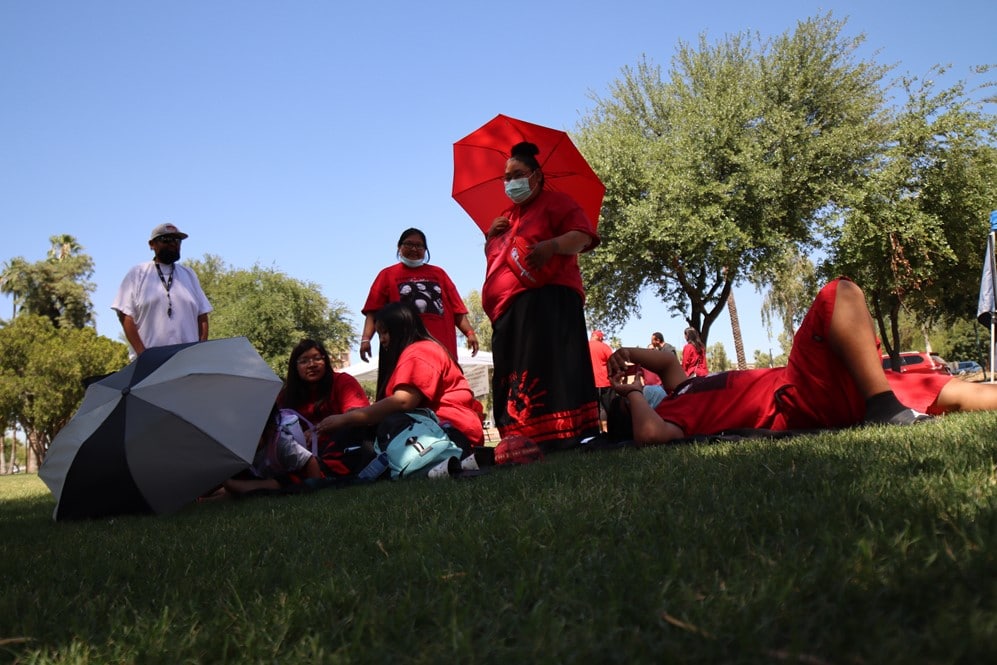Phoenix (CN) — On Thursday, Indigenous men and women across Arizona gathered in solidarity for the Missing & Murdered Indigenous Peoples rally on the state Capitol’s lawn.
In 2019, Jordan Marie Daniel from the Sioux Tribe in South Dakota ran the Boston Marathon with a red handprint across her face. The print covered her mouth to symbolize the silence brought on indigenous women. The athlete said it was her way to bring awareness to the problem of missing and murdered Indigenous women across the nation.
Many young women donned that same fierce handprint to remember sisters and friends they’ve lost. Patrons say it has become a symbolic way to remember their loved ones who authorities have long forgotten.
“Her body was in the middle of a field,” said Katrina Yazzie about her missing sister Molina. “[They] said she just laid there and died.”
Katrina said the tribes are less equipped to handle the missing and murdered Indigenous women problem and pointed to the federal government to step it up.

“When they don't do anything, it's like basically one less Native they got to worry about,” said Yazzie.
Indigenous leaders Thursday rallied and marched in a plea to receive more support to fight against violence on their sovereign lands.
According to research at the violent victimization lab at Arizona State University, 160 Indigenous women and girls in Arizona were murdered between 1976 and 2018. Roughly 30% of those homicides were a result of an argument. Moreover, across the board, Indigenous women are more likely to be sexually assaulted, stalked and physically abused by their partners.
Doing their part, male Indigenous allies at the gathering met in a senate committee room to discuss their role in protecting their sisters and changing the thought pattern of tribal youths.
“My sister was stabbed 17 times over $500 of meth,” said Raymon Meza at the male allies panel discussion. “We were mad.”
As a young boy, Meza lost his sister. As the only boy in the house, he struggled with his emotions in response to the jarring news. Meza was brought up on the bravado of rap music and vengeance ideal. He immediately thought it fit to exact revenge.
“I'll mourn later; let’s go get them,” said the younger Meza.

But before he could find her murderers, the authorities arrested them. His vengeance subsided when prosecutors said they could pursue the death penalty. The young Meza reflected.
“We made a promise on our faith that we ourselves are not going to become murderers because it's a cycle,” said Meza of the tribal stance on the death penalty. “What am I going to teach my son? So, we took the death penalty off the table.”

The male panel spent an hour discussing how men can change the pattern of violence they see in their communities.
“The youth are our future, you know, once we can affect them [and] change the way they think, by the time they're our age, hopefully, they'll trade that off and start teaching their children,” said Brandon Nahsonhoya a panelist from Honwungsi Consulting. “By then we'll break that cycle, by just letting them know that women are sacred. Women are precious; treat them well.”
Stories of lost sisters filled the air as most in attendance on the capitol lawn shared their tragedies.
“My auntie was killed. Her killer raped her and tortured her for days and then put her in the trunk of her own car, took off across two states so they couldn't find her, dumped the car dumped the body,” said Memory Longchase remembering her aunt’s death. “He was convicted of stealing her car and not for her rape and murder.”

Longchase’s sister has been missing for 40 years as well. Additionally, her niece was found dead, a victim of a hit and run. She said she might have been saved if the driver did the right thing and reported the incident.
According to Longchase, Indigenous families need support. She said that was why she showed up.
“I'm one person,” said Longchase. “And I know that there's countless families out there.”


In 2019, Arizona passed House Bill 2570, which established a study committee to investigate the nature and extent of missing and murdered Indigenous women and girls. The intended outcome of the legislation was to improve the safety of Indigenous women, and girls.
The bill has raised awareness throughout the state. Findings and strategies were communicated throughout the panels and workshops found at the rally Thursday.

Subscribe to Closing Arguments
Sign up for new weekly newsletter Closing Arguments to get the latest about ongoing trials, major litigation and hot cases and rulings in courthouses around the U.S. and the world.









